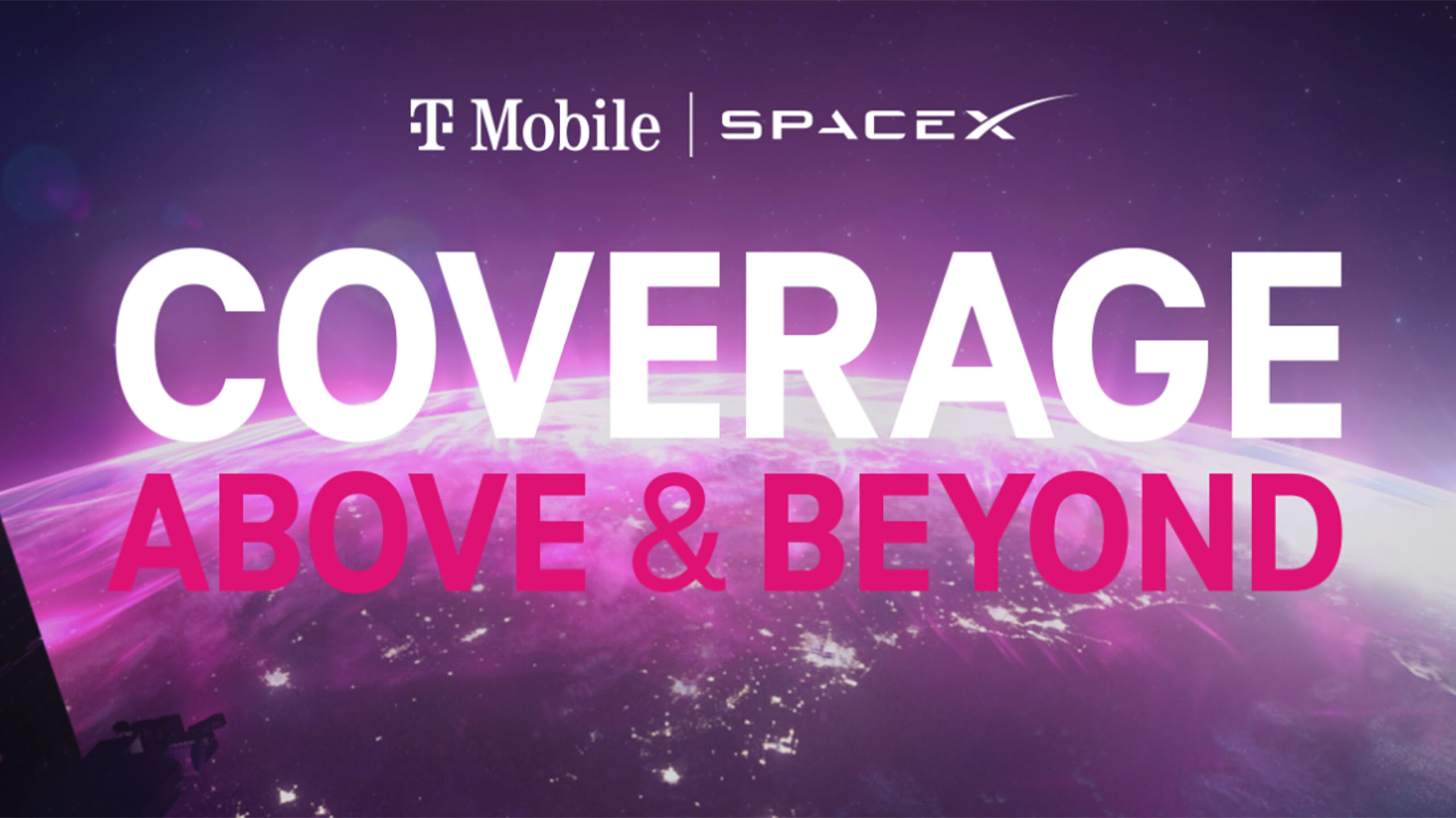
SpaceX’s Starlink and T-Mobile are joining forces to connect smartphones to satellites and eliminate dead zones “worldwide,” although actual global availability remains uncertain.
Here’s the gist: second-gen Starlink satellites, which are launching next year, will be able to broadcast service using a part of U.S. carrier T-Mobile’s mid-band PCS spectrum (which is in the 1850-1990MHz range). More specifically, phones would access a “slice of connection,” as The Verge describes it, offering around 2-4Mbps total across a given coverage area.
Note, connectivity will be 2 to 4 Mbits per cell zone, so will work great for texting & voice calls, but not high bandwidth
— Elon Musk (@elonmusk) August 26, 2022
SpaceX CEO Elon Musk tweeted the same numbers, saying the 2-4Mbps per cell zone “will work great for texting & voice calls, but not high bandwidth.”
All this assumes you have a clear view of the sky, however.
Per a T-Mobile press release, the satellite-to-cell service will be available “everywhere in the continental U.S, Hawaii, parts of Alaska, Puerto Rico and territorial waters” and is expected to launch by the end of next year in “select areas.” The company hopes that one day, it will also include data.
However, as The Verge points out, the system will use a traditional cell spectrum, which introduces problems with global access. On the one hand, using cell spectrum means your current phone will work (at least if it supports mid-band 5G). The downside is that T-Mobile doesn’t own the rights to that spectrum worldwide. That means Starlink would have to try and gather carrier partners in other regions with those spectrum rights to expand the system beyond the U.S.
In Canada, it appears Telus is one of the holders of PCS spectrum, specifically, PCS-G Block spectrum for New Brunswick and Northern Ontario it acquired at auction in 2017.
In other words, Canadians and others living outside the U.S. probably shouldn’t get too excited by the prospect of cell service from satellites. The companies are seeking partnerships with other mobile carriers to set up reciprocal spectrum sharing agreements so that customers can connect to Starlink, but it remains to be seen if any Canadian carriers get on board.
However, analysts told The Verge it might be easier for Samsung and Apple to integrate existing satellite connectivity into their smartphones. There have been rumours flying for some time that Apple plans to launch some kind of satellite capability in the iPhone, but so far, those rumours haven’t played out.
Header image credit: T-Mobile
MobileSyrup may earn a commission from purchases made via our links, which helps fund the journalism we provide free on our website. These links do not influence our editorial content. Support us here.


